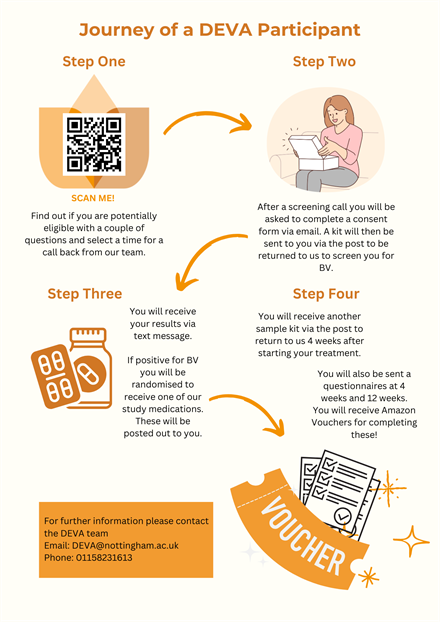The DEVA study has now closed to recruitment.

About the DEVA study
-
We are looking for women to join our study and help us find out whether a new antiseptic treatment, dequalinium chloride, is as good at treating bacterial vaginosis (BV) symptoms (such as an unpleasant smell or discharge) as antibiotics.
-
Joining the study is easy and free and you can take part without leaving the house. To get involved you need to complete the eligibility questionnaire to help us determine if the trial is suitable for you by clicking the large orange button at the top of this page "Find out if you are eligible to take part".
-
If you are a suitable candidate, the last question will ask you to let us know the best time to call you and you will be contacted by one of our research nurses to talk about the trial in more detail.
-
We send you everything you need to be part of the trial, including study information and a vaginal sample kit (by post) to check if you have BV.
-
If you do have BV and join the trial, we will post out your treatment for free, along with a second sample kit to check if your treatment has worked.
-
Four and 12 weeks after you start treatment, we will ask you to answer some questions about your symptoms. To say thanks, we will send you £20 of Amazon vouchers (£10 at week 4 and £10 at week 12).
The video below is a short animation showing what the trial involves
If you would like to speak to a DEVA nurse about the study, the medications or what to expect if you do choose to take part, please use the details below:
Michelle Loftus-Keeling, 0113 39 20323
or feel free to email the study team on deva@nottingham.ac.uk


Contact us
Email: DEVA@nottingham.ac.uk
Phone: 0115 8231613